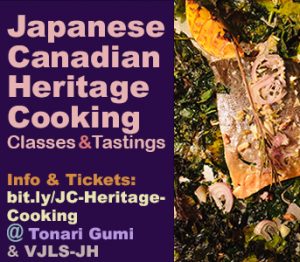Editorial February 2008
One of the wonderful things about children is their complete and utter egocentricity—not in the way that adults can be full of themselves, or in the way the Freud defines ego, but in a way that is entirely innocent and beyond reproach.
This manifestation of ego is seen in the way that young children are universally incapable of conceiving of anything happening before they were born, as if the world itself was born the moment they exited the womb—complete with parents and siblings, grandparents and family pets, all fully-formed and waiting for orders. Although we are soon disabused of this notion, at least in the rational part of our minds, I think some small part of ourselves holds on to this idea—that nothing else really existed before we did. After all, we didn’t experience it, so how real can it be? Which is why we roll our eyes when our parents reminisce about the “old days”, before the internet, computers, cell phones, cars, refrigerators, etc. We understand it intellectually, but it’s all rather abstract.
Perhaps it is why it is so difficult to watch family members, particularly parents, grow old and eventually die. They have always been there—from the moment we became conscious—therefore it is impossible to conceive of them not being there, to see them diminishing before our eyes. Again, we can understand intellectually that it is inevitable, but we can’t really grasp the reality until it happens.
As I was putting together this issue, thinking about the subject of relationships (what makes some work and others not) I got to thinking about my own parents and their pre-marriage, pre-family relationship, which to me, like any child I think, has always been a bit of a mystery. Maybe we don’t really want to know that our parents had a life before us. I remember my own parents discussing events that had happened before I was born and feeling a sense of outrage that they dared do something without me being there.
I also got to thinking how physical distance as much as age has diminished my parents in my mind’s eye, (and in my egocentric view of the world). I can’t drop in just to say hi like I did when they lived in Chinatown. Now that they are living in Nelson with my sister Rachel, our visits are few and far between—made more difficult by unpredictable weather and a jam-packed work and family life.
So I thought this Valentine’s Day was a good time to bit the bullet and ask about the origins of my parents’ romance. An e-mail to Nelson got this response and I’ll turn over the rest of this page to my mum:
Tod and I have been married since 1954. How is that for staying together, eh? We met when I was going to art school in Regina. I heard all about him through Art Mckay who was one of my art teachers and he painted such a romantic picture of Tod, I thought I would like to meet him. Lo and behold, Tod turned up at Art’s house, passing through after hitchhiking from Toronto on his way to his folks’ home in Alberta. I had just finished my stint working up a Emma Lake, where I was earning my college tuition by peeling potatoes, and had returned to Regina to finish my second year and I was renting a place at Art’s house. So it was a fateful meeting.
My mother was horrified, although oddly she had said to me once upon a time that my marriage would not be arranged as hers was. Tod’s parents were most welcoming. Tod’s father did say that our union would be hard on our children—thank goodness, today people have become more tolerant.
I had left home to go to college around 1952. After art college I received a scholarship to the Pennsylvania School of Art in Philadelphia. I was happy and heartbroken at the same time. After a month away, Tod sent me a proposal to wed and a ring. So there went my opportunity for further scholarship and a trip to Europe. I went straight to Lac LaRonge to meet up with Tod where he was building a tourist fishing camp with Lori and Art Mckay. Lori & I caught fish and cooked for our guests from the US over an open camp-fire until we rebelled and got a real stove (a wood stove of course). This was a real pioneer-type camp. Tod was a guide for the fishermen. He seemed to know where the fish were. Catching fish was very important for the tourists and probably made up for the crude camp—the native fish guide did not have Tod’s luck.
After the fishing was over, I dutifully went home and my parents and sister Elsie prepared our wedding. Chapel, banquet, the whole shebang. I had wanted a small ceremony but since I was the eldest daughter, it was right thing to do for my family. Anyway it didn’t hurt us.
We worked for several years in Regina and Saskatoon to save up to travel.
Did we have a honeymoon? Our whole life was one big honeymoon!










